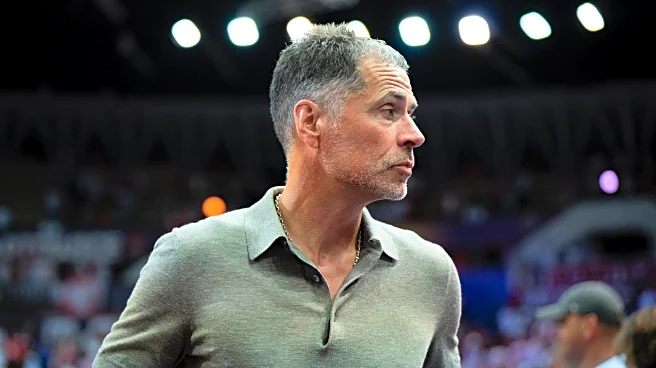What's Happening?
Indigenous protesters forced their way into the COP30 climate summit venue in Belém, Brazil, clashing with security guards. The protesters demanded climate action and forest protection, highlighting issues
such as land rights and opposition to agribusiness, oil exploration, and illegal mining. The protest occurred as thousands of delegates attended the UN climate summit, emphasizing the role of Indigenous communities in environmental discussions. Security personnel managed to secure the venue, allowing negotiations to continue, while Brazilian and UN authorities investigate the incident.
Why It's Important?
The protest underscores the critical role of Indigenous communities in climate discussions, particularly in regions like the Amazon where environmental degradation directly impacts their livelihoods. It highlights the ongoing tensions between development projects and Indigenous rights, raising questions about sustainable practices and the inclusion of Indigenous voices in policy-making. The disruption at COP30 may influence the summit's agenda, potentially leading to increased focus on Indigenous issues and forest protection. This event also reflects broader global challenges in balancing economic interests with environmental and social justice.
What's Next?
The incident may prompt further dialogue between Indigenous leaders and summit delegates, potentially influencing the outcomes of COP30 negotiations. Brazilian President Luiz Inácio Lula da Silva has emphasized the importance of Indigenous communities in the talks, suggesting that their concerns may be addressed in future agreements. The protest could lead to increased scrutiny of development projects in the Amazon, with potential policy changes aimed at protecting Indigenous lands and promoting sustainable practices. Continued advocacy by Indigenous groups is likely as they seek to ensure their voices are heard in environmental discussions.
Beyond the Headlines
The protest highlights deeper issues related to Indigenous rights and environmental justice, reflecting broader global challenges in addressing climate change. It raises ethical questions about the responsibilities of governments and corporations in protecting vulnerable communities and ecosystems. The event may inspire similar actions by Indigenous groups worldwide, emphasizing the need for inclusive and equitable approaches to environmental policy. It also underscores the importance of integrating traditional knowledge and practices in climate solutions.










